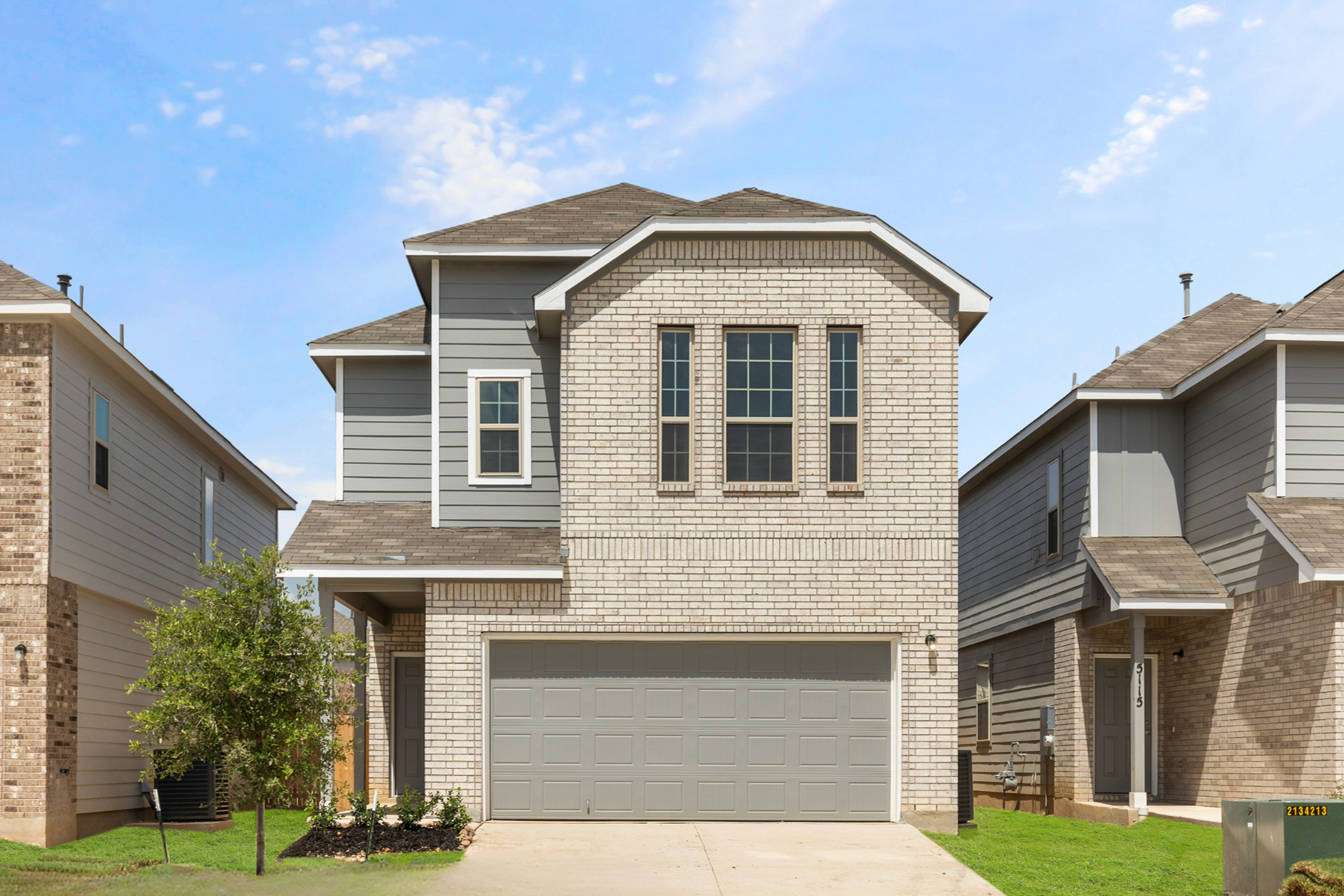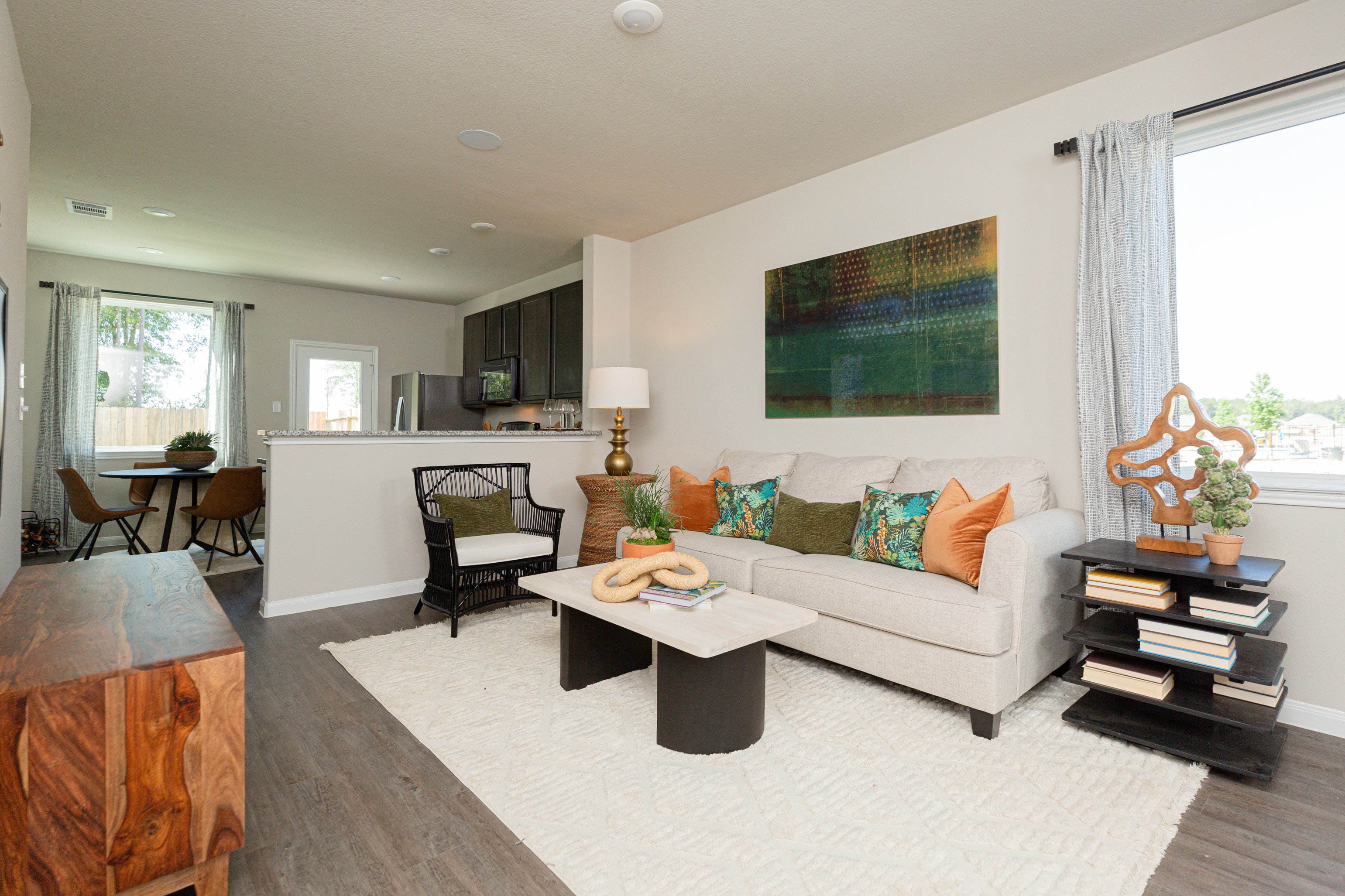Thinking about taking the leap into homeownership but unsure where to start? Whether completely new to the process or refreshing before you get your search started, review the following homebuyer FAQ to find out the most common questions and answers every first-time buyer needs to know.
Question 1: How much should I be expected to pay on a down payment?
Answer: There’s no exact percentage or amount that buyers are expected to pay on their down payments, though there are industry standards that lenders recommend.
For example, traditional advice recommends that buyers put down at least 20% on their homes but to qualify for an FHA loan, buyers only need to put down 3.5%. Rocket Mortgage also reports that the average down payment made in the U.S. is only 6% of the home’s value, and some lenders will offer mortgages for as low as 3% down depending on the borrower’s credit score and other factors.
There’s also the basic math associated with down payments. Because lenders calculate this charge based on the value of the home (or what’s being borrowed to purchase the home), down payment amounts vary from one to the next.
In other words, a friend, family member, or acquaintance can purchase a home with a much higher or lower down payment than you expected. The reason? Lenders and sales professionals work on a customer-by-customer basis to identify the appropriate down payment for each person they serve, as determined by that individual’s budget, credit score, current outstanding loans, and more.
Question 2: Will I have to buy appliances when I move into my new home?
Answer: Not necessarily. Whether or not you’ll be required to purchase appliances for your new home depends on the builder, the property, and the package you purchase.
We recommend that all buyers review these details with their builder and sales professional during the purchasing process. Why? No surprises. The last thing anyone wants to do is show up on move-in day only to realize they don’t have anywhere to keep their milk and eggs cold.
Evaluating what is and isn’t included also helps first-time buyers budget accordingly. Some make the mistake of saving up just enough money for a down payment only to realize that there are often additional charges and costs associated with the purchase of a home.
Moving.com put together an excellent rundown of everything that buyers can expect to be included in a house they purchase, what might be included with the purchase, and what definitely won’t be included. Hint: Don’t expect to inherit a beautiful new TV that’s already mounted on your wall.

Question 3: How much home can I afford?
Answer: The size and value of your home ultimately depends on your budget, income, and other financial factors.
Every buyer is different and so is every builder, which means that a home built by Company X could be the same size as a home built by Company Y but cost $100,000 more. In effect, How much home can I afford? is a difficult question to answer without first considering a slew of other factors, including tax rate, HOA fees, and more
With that said, handy mortgage calculator tools can be used to help first-time buyers identify exactly how much they can expect to spend based on a home’s value, the loan amount, the interest rate, and other factors. This resource plus the assistance of a trained sales professional can help buyers find exactly the right home based on their budget.
Question 4: How does the tax rate impact the price of a home?
Answer: The tax rate on a home can significantly impact the total cost of a property.
States, counties, and cities often levy property tax rates to homeowners, though these rates can vary widely from one area to the next.
For example, in Texas, residents are not charged a state income tax, which means that municipalities often account for this in the budget by levying higher property taxes. Even a 1% change in tax rate could mean the difference between being able to afford a home and not.

Question 5: How do I get prequalified for a home loan?
Answer: Work with a preferred lender to get pre-approved for a mortgage.
In hot real estate markets, being preapproved for a loan could mean that you win a bid on a home over another buyer who didn’t make time to get it done.
To get prequalified, first contact a preferred lender to get the process started. Lenders will request financial information from the buyers to prove their income, which helps establish the size and terms of the loan.
However, keep in mind that as Rocket Mortgage points out, a preapproval is different than approval. The former is great when people are shopping for homes, but the latter is needed once a buyer finds the home they want to purchase.
Legend Homes works with First Choice Lending Group to help buyers find the right home loan for their situation. There are several other steps to the home loan preapproval process, so we first recommend reaching out to our Online New Home Advisors to get the process started. Email them now at onlinesales@legendhomecorp.com.
Question 6: What are closing costs?
Answer: Closing costs are expenses, fees, and other charges that are associated with the purchase of a home in addition to the down payment.
Per Quicken Loans, closing costs typically range from 3–6% of the purchase price of a home. These fees cover insurance and property charges and charges related to the transaction itself as incurred by the lender.
With this in mind, it’s incredibly common for homebuilders to contribute toward closing costs — and even sometimes completely cover these costs, depending on their sales incentives.

Question 7: Do I need a realtor to represent me when buying a home?
Answer: Not necessarily, though many first-time buyers get a lot of value from working with experienced sales professionals.
Most people need a hand when shopping for homes, especially if it’s their first time. With that said, buying directly from homebuilders like Legend Homes adds a distinct advantage for first-time shoppers without the need for a realtor or real estate agent.
Why? An experienced salesperson who is employed by the homebuilder knows every little detail about the brand, the construction process, and the homes themselves. As a result, first-time shoppers can locate the right home that matches their needs—and be fully prepared through every step of the process.
Question 8: What’s included in a home warranty?
Answer: Structural home warranties provide performance guidelines and warranty coverage for workmanship, distribution systems, and load-bearing structural components on a given home.
In other words, home warranties are valuable risk management tools that protect everyone involved in the buying process, from the builder to the homeowner. To learn more about Legend Homes’ warranty partner, 2-10 Homer Buyers Warranty, check out this detailed resource.

Question 9: Am I able to make changes to the home, pick my colors, and other customizations?
Answer: It depends on the home and the builder.
Some homebuilders permit customers to make customizations for pretty much every component of a home. For example, people who work directly with an architect and builder to construct the home of their dreams likely have much more say over the look and feel of a home versus those who purchase an inventory home.
On the other hand, other builders don’t permit changes at all. This helps keep production schedules on track and ensures that costs don’t run over what’s budgeted for a certain project. Ultimately, however, the option for home customizations depends on the type of home that’s purchased as well as the stage in which the home is purchased.
Question 10: How long does it take to construct a new house?
Answer: The time it takes to construct a new home depends on a variety of factors, including everything from the size of the home and supply chain health to weather and labor.
Homebuilders want to deliver homes on time to their customers. Nobody wins if the construction is delayed.
But, unfortunately, delays can and do happen regularly. And while there are ways that building teams can make up for lost time, there’s only so much a crew can do without sacrificing quality or safety.
This plus the various weather events, supply chain slowdowns, and other factors that can impact construction make it even more difficult to predict exactly when a home will be finished. The key? Communication.
The best sales professionals consistently communicate construction updates to their clients. That way, everyone is in the loop and the future homeowner can better anticipate shifting completion updates.




